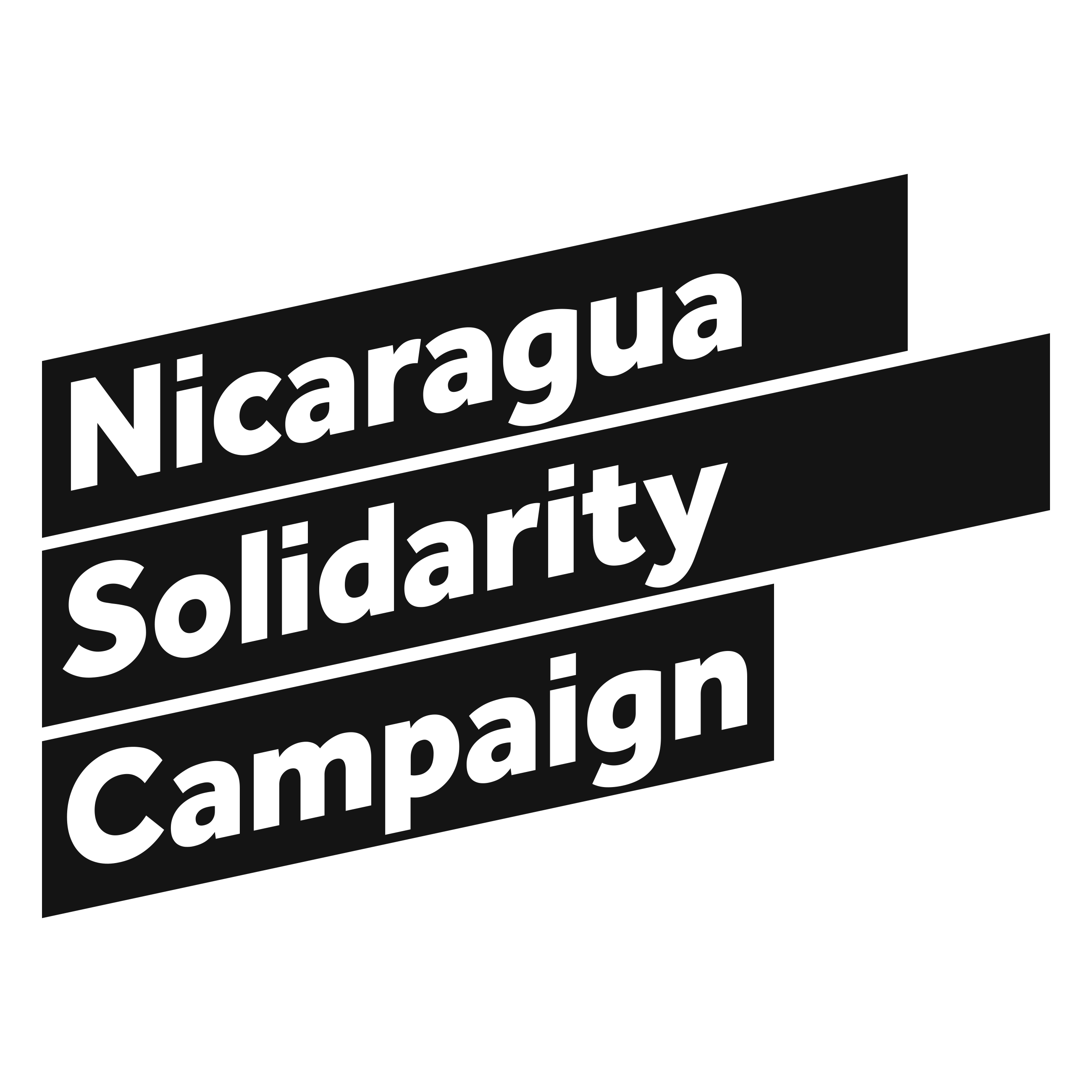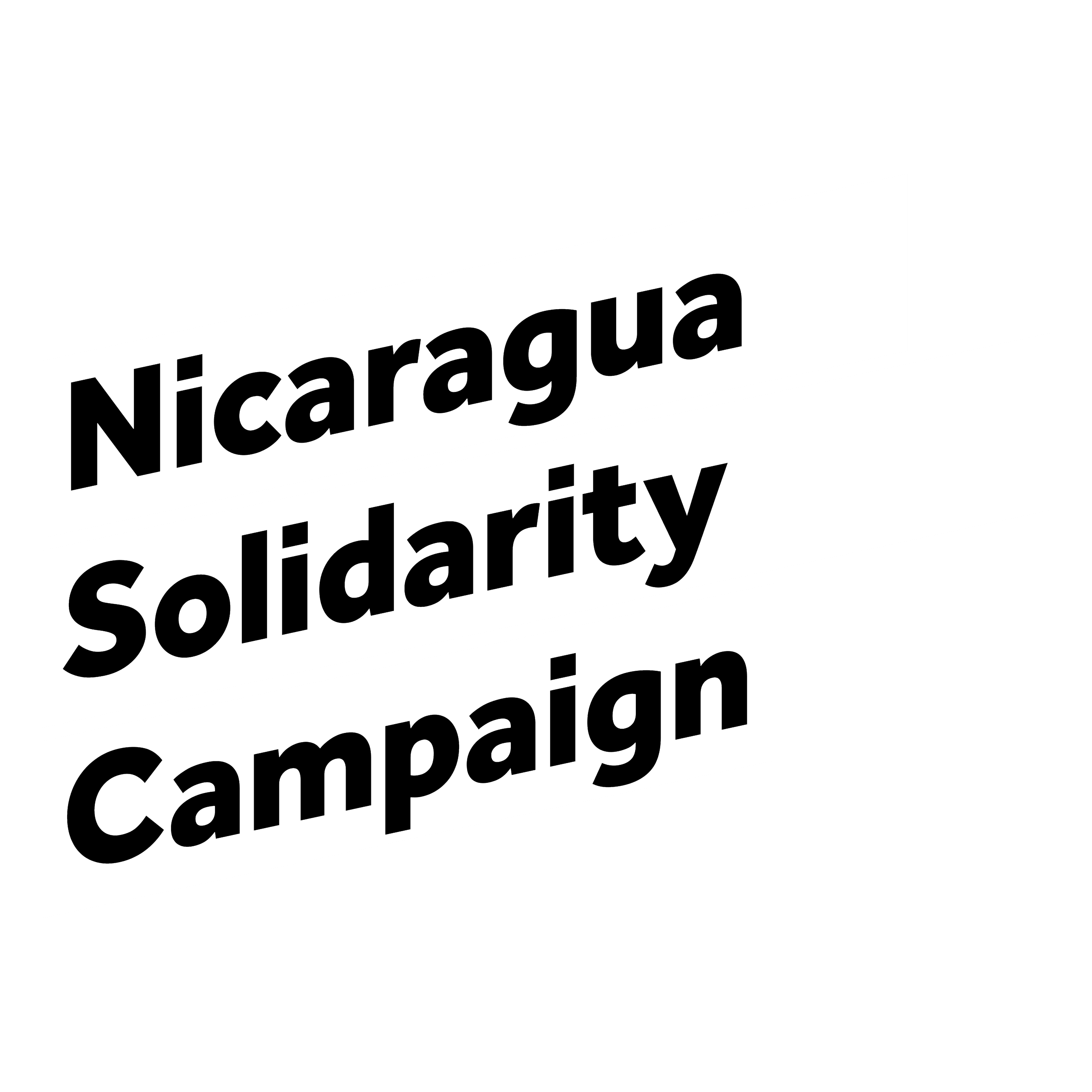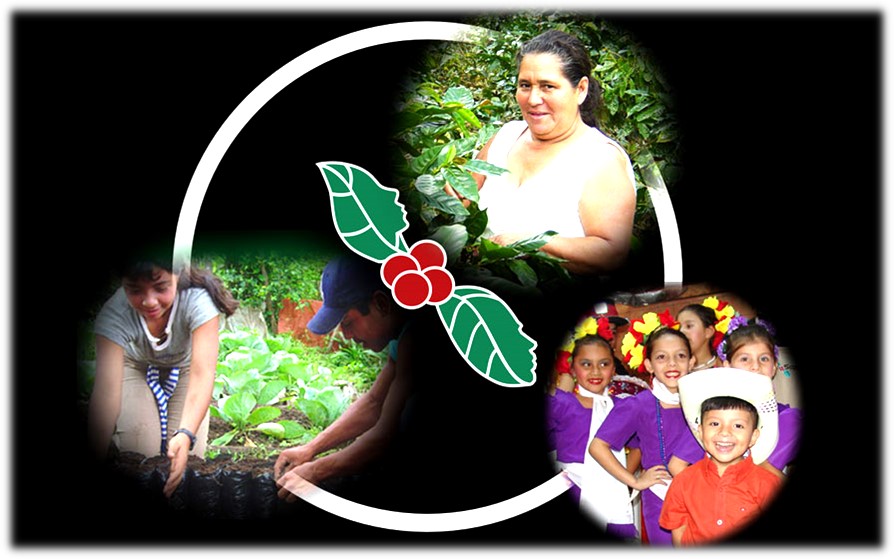
Fairtrade, climate justice and social justice are interconnected
This was the message from representatives from the Co-operative Union (UCA) SOPPEXCCA at a webinar co-hosted by NSC and the Bristol Link with Nicaragua to mark Fairtrade Fortnight.
We are very grateful to SOPPEXCCA general manager Fatima Ismael and producer Erika Lanzas Rodas for their inspiring presentations and to Roy Kareem, Bristol Black and Green ambassador for facilitating the event.
The following is a summary of the presentations of Fatima and Erika.
Where is Nicaragua and what kind of country is it?
Nicaragua is a small, impoverished Central America country roughly the size of England and Wales with a population of 6.3million, 49.5% men and 50.5% women.
While it has a richness of resources it is impoverished for historical reasons because of its role as a country from which raw materials were extracted. An added factor is the boom and bust cycles for these raw materials of which cotton production of the 50s and 60s is one example.
Poverty is is particularly high in rural areas with thousands of people living a hand to mouth existence struggling to generate an income for their families.
The main crops grown in Nicaragua are coffee, basic grains such as beans and rice, cattle, cacao and fruit and vegetables.
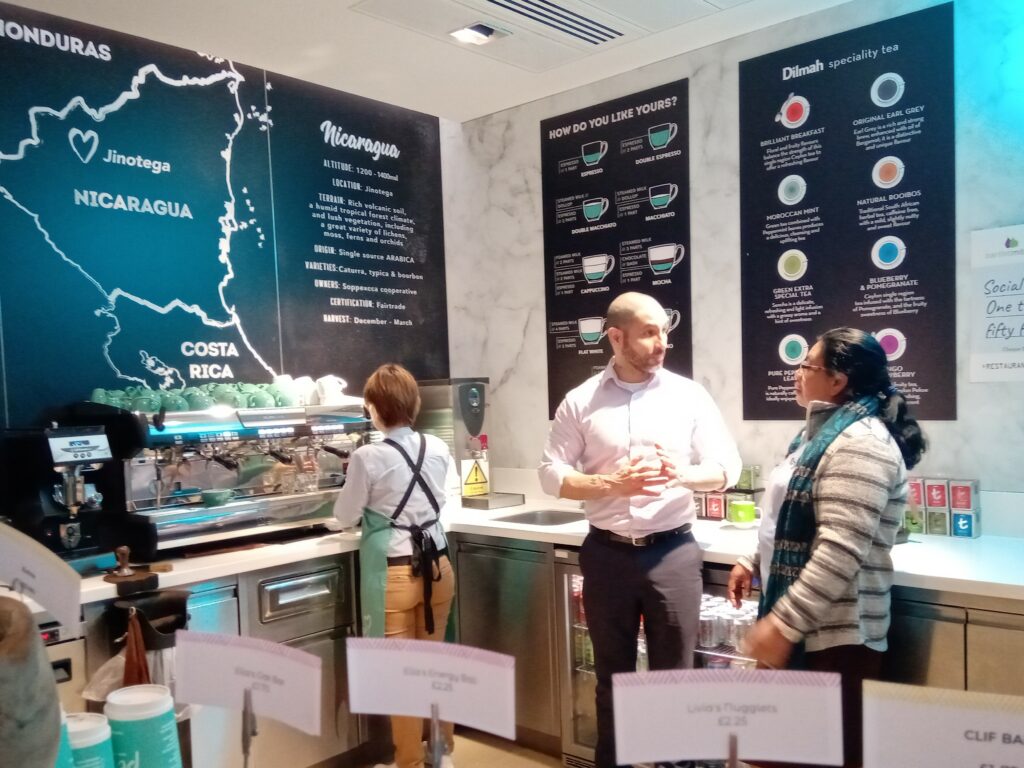
SOPPEXCCA producer Gloria Gonzalez visited the UK March 2020 as part of solidarity with SOPPEXCCA promoted by NSC and the Bristol Link with Nicaragua over the past 25 years.
How important is coffee for small producers?
There are 44,500 coffee producers in Nicaragua and 97% of them are small scale producers who own on average 15 hectares of land. They produce 45% of Nicaragua’s coffee.
Coffee generates direct employment for 300,000 families.
What is SOPPEXCCA and what are its goals?
SOPPEXCCA is located in the department of Jinotega in northern Nicaragua and is made up of 650 producer members organised into 16 co-operatives.
It is based on an organisational model of inclusion of families to achieve equality, social justice and the fair distribution of resources. Environmental and social education programmes promote human development through empowering small producers and their communities.
Key areas of work are sustainable organic production, environmental protection, and technical, training and credit programmes. Two cross cutting areas of work are gender equality and the involvement of young people in all aspects of the life at all levels of the organisation.
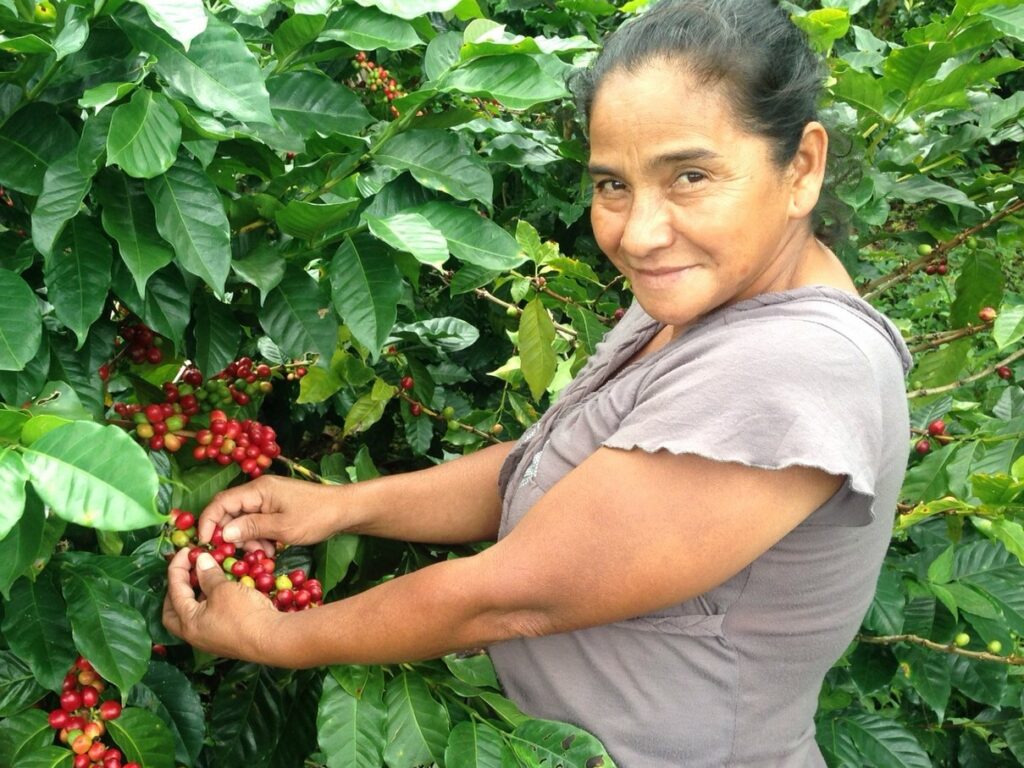
Ana Maria Gonzalez picking organic Fairtrade SOPPEXCCA coffee
How is climate change affecting the members of SOPPEXCCA and communities in general?
Nicaragua as a country and SOPPEXCCA as an organisation are in a constant struggle against the impact of climate change: droughts, floods, and hurricanes.
The producers and their families are the ones who are at the forefront of risks to their lives and livelihoods in combating climate change especially as their main crops are coffee and basic grains for the survival of their families.
In November 2020 two unprecedented major hurricanes struck Nicaragua. For SOPPEXCCA producers this brought landslides and destruction and damage to crops. Fallen trees caused extensive damage to organic Fairtrade coffee grown among trees and banana palms.
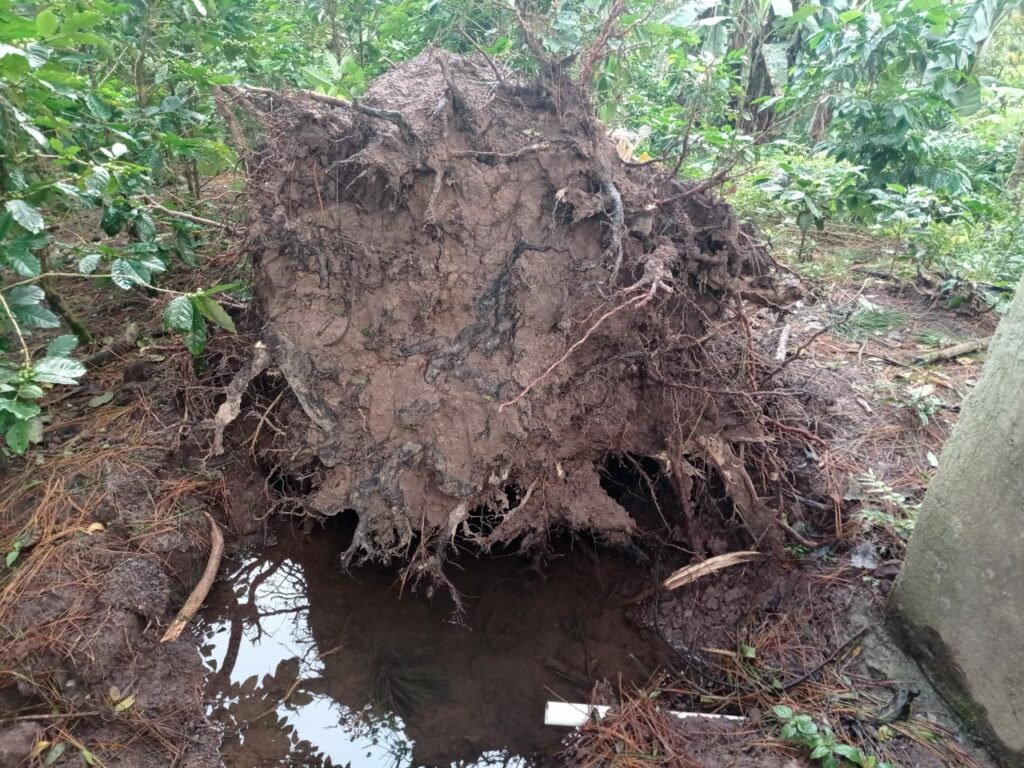
In 2014 – 2015 producers lost 40% of their coffee crop due to roya, a coffee rust that destroys the coffee bushes. Roya occurred because of temperature rises that create the favourable conditions for diseases.
Changes in weather patterns mean more intense drought, torrential heavy rains and periods of unpredictability causing damage to crops and lower production. Rising temperatures mean that coffee is becoming less viable in the lower slopes of the hills.
All these factors have severe direct and indirect social, economic and environmental impacts.
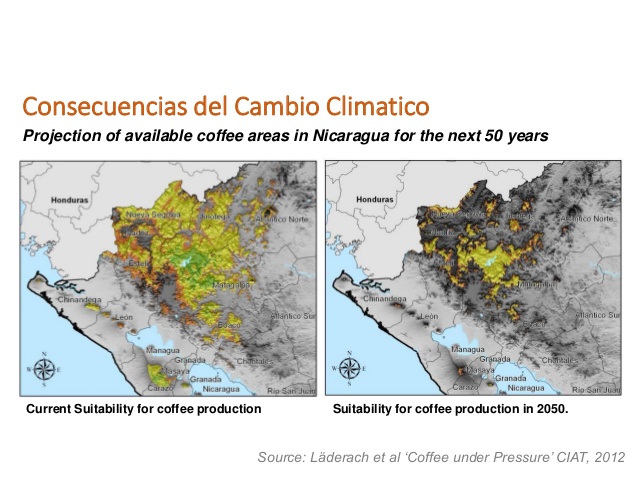
What is SOPPEXCCA doing to mitigate and help producers build resilience to climate change?
There are a number of integrated initiatives that SOPPEXCCA is implementing. This includes extensive reafforestation of areas of forests (especially important after the hurricanes); establishing areas of agro-forestry with hardwoods for timber, fruit and banana palms; diversification of production to include cacao, honey and basic grains to improve food security and increase the income of families; setting up an organic composting plant; and implementing processes for drying coffee in the sun to avoid using non-renewable energy.
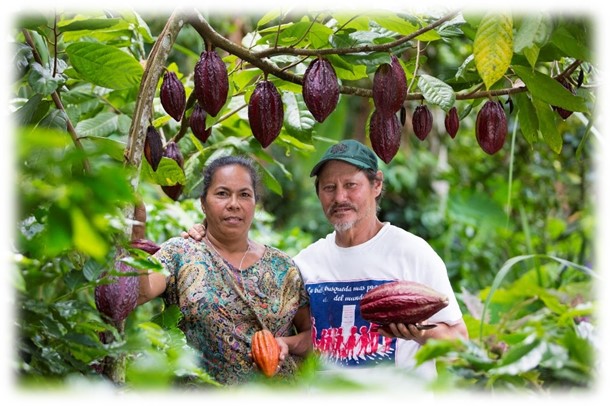
Diversifying production to include cacao as a means of adapting to rising temperatures
All these measures are reinforced with constant education and awareness raising with producers, communities, and in primary and secondary schools.
What measures has SOPPEXCCA taken to implement gender equality?
SOPPEXCCA was the first co-operative in Nicaragua to design and implement a gender policy which has facilitated other co-operatives to follow their experience.
In terms of leadership this has meant 32% of those in leadership positions are women.
SOPPEXCCA has worked intensively to ensure that women have access to land, credit and markets and all SOPPEXCCA programmes have at their heart the involvement of women and young people.
Markets include Fairtrade coffee for export and setting up local market spaces where women can sell fruit, vegetables, chocolate and other products.
Through these initiatives women have been empowered in terms of their life circumstances, their family unit, their co-operatives, their communities and SOPPEXCCA as a whole.
Some examples of areas of work include raising the self-esteem, visibility and confidence of women in production; reducing the excess workload through campaigns aimed at participation of all family members in household tasks; and the permanent struggle to eliminate all types of violence and inequality.
Agroecological systems essential for mitigation and adaptation to climate change and conserving biodiversity and ecological balance, are being adopted by small producers and in particular by women.
Another area of generally neglected work that SOPPEXCCA is beginning to address is the social protection for older rural women.
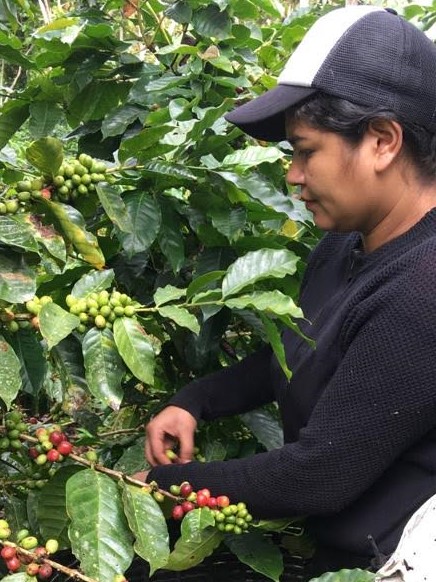
Promoting gender equality is at the heart of all SOPPEXCCA’s work
What is SOPPEXCCA’s message to Fairtrade and climate activists in the UK?
‘Fairtrade helps us to achieve our goals: diversification of production, promotion of gender equality including land and credit for our members especially women, production high quality shade grown coffee, environmental protection; and fully incorporating young people into all our work.’
‘Don’t abandon the fight for social justice and climate justice for our people – keep going! Climate justice is also social justice, equality, being able to say we are human beings. ‘
‘Join the Fairtrade cause; it is both the bridge and the vehicle that will transform the wellbeing of the families of small-scale producers. There cannot be climate justice without justice in the market for our products. ‘
‘We must highlight all our efforts to create a healthy and sustainable environment and show that in the hands of men and women small-scale producers lie family economies, livelihoods and possibilities for real human development for all on equal terms.’
‘Together we will continue to create a better world.’
For a link to the webinar
Spanish https://www.youtube.com/watch?v=Exwmi-FB7lE
English https://www.youtube.com/watch?v=EbzY45QNk-Y
What you can do
*Join NSC as a member to support our campaign for social, economic and climate justice in solidarity with Nicaraguan social movements
https://dev.nicaraguasc.org.uk/get-involved/join-as-a-member/
*Follow Bristol Link with Nicaragua (BLINC) on Facebook for news and updates
https://www.facebook.com/bristolnicaragua/
*Buy Fairtrade – look out for the logo, find out more about Fairtrade products available in the UK or https://www.cafedirect.co.uk/
*Sign The Climate Coalition declaration demanding UK government take action on the climate crisis in the lead up to COP26 in November is Glasgow https://thetimeisnow.uk/
*Sign up to the COP26 coalition who will be mobilising in the lead up to Glasgow https://cop26coalition.org/
*Above all look out for and get involved in the thousands of national and local actions to exert pressure from below to ensure that the outcome for COP26 is not just a cosmetic fudge but that the largest emitters such as the UK commit to concrete action for which they will be held accountable.
